Mental health conference aims to address 'long-standing taboo' in Black communities
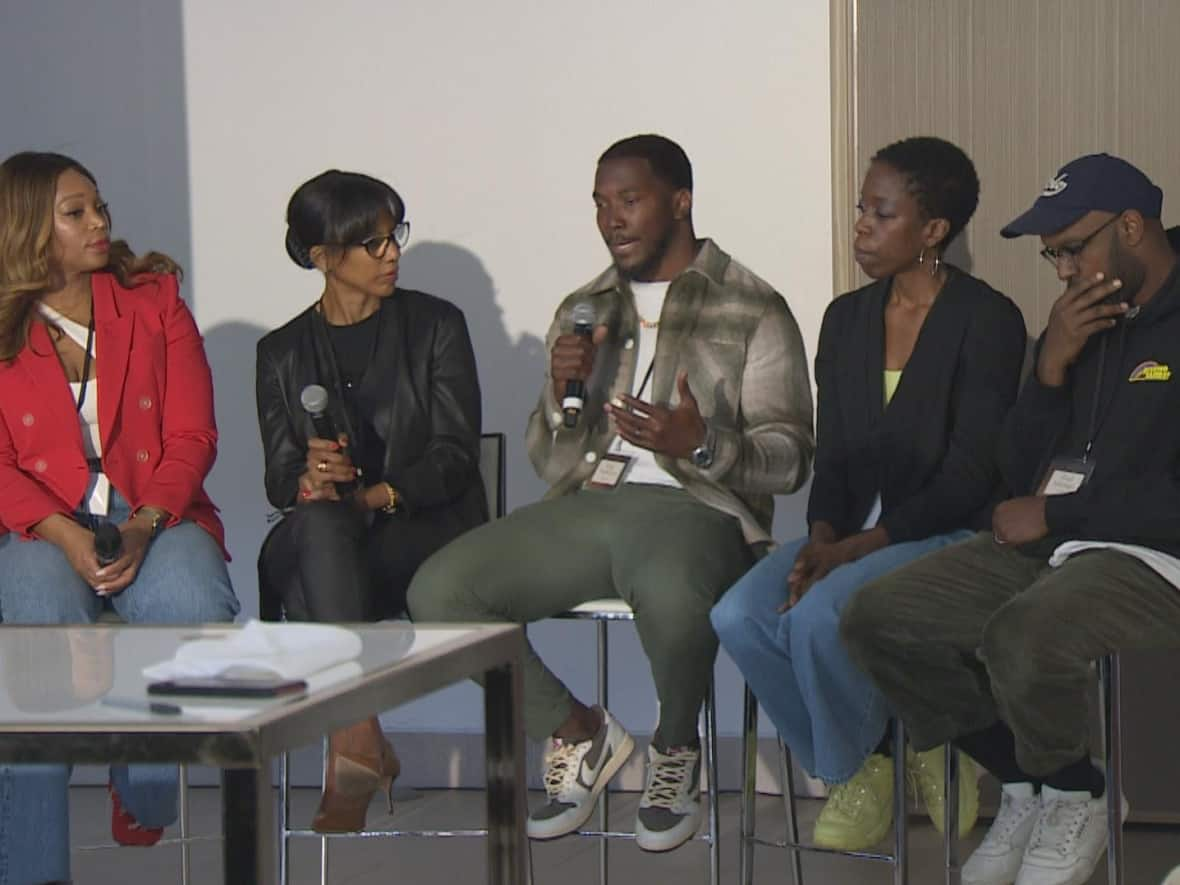
The Blacker The Berry, a new conference focused on the mental health of Black Torontonians, had its inaugural event Saturday.
The event was billed as Toronto's first annual mental health conference centering the lived experiences of the African diaspora and Black-identifying Canadians.
Joseph Smith, executive director of Generation Chosen and one of the conference organizers, told CBC Toronto a conference like this is especially critical in a post-pandemic world.
"Mental health is a long-standing taboo within the black community," Smith told CBC Toronto. "After everything we saw between 2020 and onwards around anti-Black racism across North America and the world, this is an event to get us out of our silos and bring us into a space where we can openly have a dialogue."
According to a survey by the Mental Health Commission of Canada, only 38.3 per cent of Black Canadians with mental health issues used mental health services between 2001-2014 compared to 50.8 per cent of White Canadians."
Organizer's launched this new conference to offer a safe space to openly discuss mental health in Black communities. It was named for Wallace Thurman's The Blacker The Berry: A Novel of Negro Life, published in 1929 during the Harlem Renaissance.
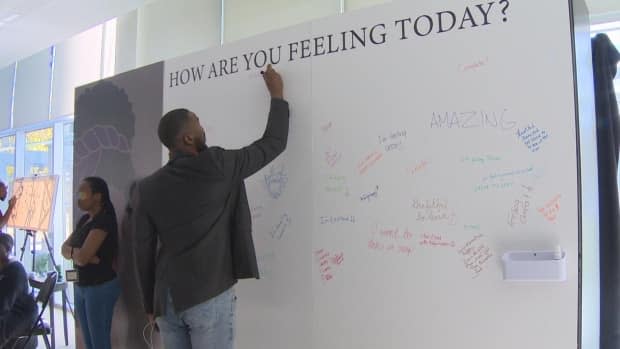
Proceeds from the conference will help provide free therapy to Black youth and young adults from underserved communities.
Dozens of people attended the St. James Cathedral Event Venue to hear panelists speak about self-care and wellness practices meant to help combat the impacts of interpersonal, internalized, and structural racism.
Tracey Moore, television personality and host of Cityline, was among those panelists.
"Black mental health is something we just do not speak about enough," she told CBC Toronto in an interview.
"When I was a television reporter, we would cover violence in the Black community. We would cover poverty. We never covered it from a mental health angle. And we should have been this whole time," Moore said.
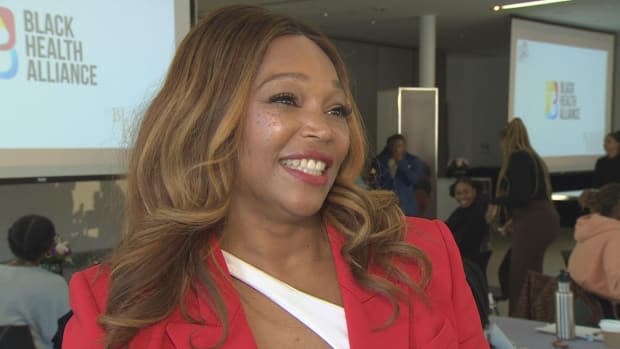
She is especially concerned with how the mental health of Black women is treated in the health-care system.
"A lot of people say the health-care system is to Black women what cops are to Black men. That's how dangerous it could potentially be for us. So we need to speak about these things more openly," Moore said.
Former New York Jets player, Doug Middleton, was also on hand to speak about his own experiences as an athlete.
Black athletes are expected to be strong and resilient people, so often face stigma when it comes to mental health issues, he told CBC Toronto.
"But at the same time we feel pain and we feel harm just like anybody else does. And so I think it's very important that we continue to bring light to that," Middleton said.
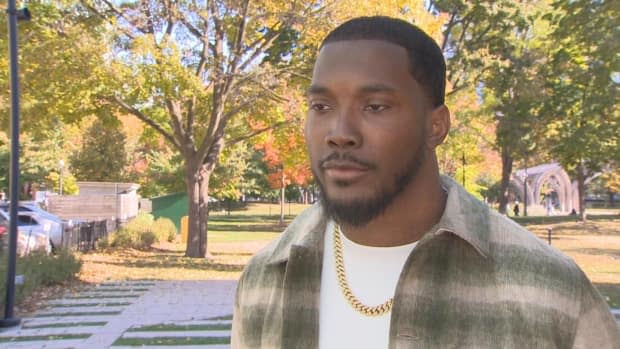
He grew up in a household where issues often went unaddressed.
"With my children … whatever happens, we talk about it," Middleton said. "It's very important that we talk about things and then we find solutions to them, not just to have things happen and it stays under the cover."
There needs to be more investment in holistic mental health resources and more access to therapy for those who need it, he said.
Jacquie Compton, an art and sensory-motor psychotherapist, was invited to the conference to lead a clay workshop in the afternoon.
"Working with the arts and the body actually transcends language because trauma itself takes words away," she told CBC Toronto in an interview.
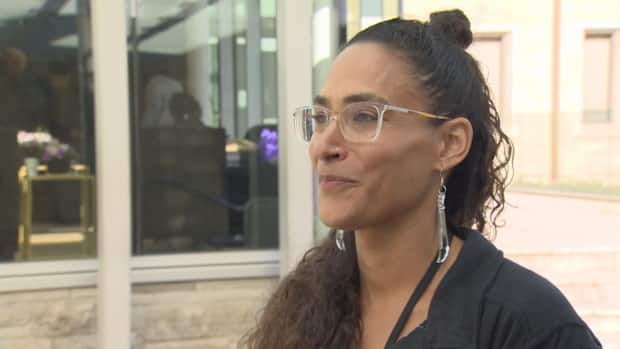
Her practice focuses on trauma-informed therapy.
"Specifically racialized trauma," she said. "How it is embodied in our ways of being, how it shapes us, how it might define the way we move in the world."
Things like shaping clay can help people understand things about their mental health that they may not be able to communicate through language alone, she said.
For Smith, this is all just the start of a larger conversation.
"Members of the Black community are constantly at odds with our health-care systems," he said.
Health institutions often uphold the same stigmas, false characterizations, and stereotypes that Black people face in larger society, Smith said.
"One way to solve that is to get more individuals that look like the [members of the community] they're trying to serve into these positions," he said.
"But that also means that you're trying to fight against institutional habits."
For more stories about the experiences of Black Canadians — from anti-Black racism to success stories within the Black community — check out Being Black in Canada, a CBC project Black Canadians can be proud of. You can read more stories here.



